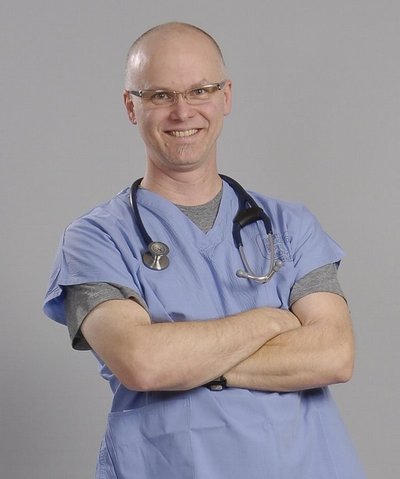August 19, 2010
U.S. Department of Education award prepares new nurse educators
Finding the next generation of nurse educators is a challenge facing nursing schools across the country. The UW School of Nursing, like most others nationally, is facing a demographic challenge, the aging of the nursing faculty workforce.
According to a 2009 American Association of Colleges of Nursing (AACN) report on nurse educator salaries, the average ages of doctorally prepared nurse faculty holding the ranks of professor, associate professor, and assistant professor were 59.1, 56.1, and 51.7 years, respectively. The report also stated that the average age of nurse faculty at retirement is 62.5 years. With the average age of doctorally-prepared faculty currently 53.5 years, a wave of retirements is expected within the next ten years.
In preparation for the future, the UW School of Nursing has applied and been awarded a grant from the US Department of Education for Graduate Assistance in Areas of National Need (GAANN). The GAANN fellowship allows the School to support three PhD students who are committed to careers as faculty members with up to $43K per year for three years.
Selection criteria for GAANN Fellows are: academic excellence, career promise, research experience, interest in teaching, and financial need, with an emphasis on recruiting and creating a positive climate for under-represented students.
The UW School of Nursing has selected Delilah Bruskas, Robin Narruhn, and Steven Simpkins as GAAN Fellows for 2010-2013.
“The GAANN Fellowship enables me to explore innovative pedagogical approaches while being mentored, in addition to developing my research skills in my PhD program. I hope to contribute to the current knowledge in the amelioration of reproductive health disparities by focusing on patient centered and culturally safe reproductive care for marginalized individuals and communities,” Robin Narruhn, who plans to focus on reproductive care, community health and disparity reduction, said after being notified of her award.
The GAANN program will specifically enhance the quantity and quality of teaching experiences for all the awardees, developing pedagogy and research as important curricular emphases of their programs of study and preparing them for future faculty roles.
Delilah Bruskas, whose interests include community health and vulnerable populations, is pursuing her PhD as a way to become a better advocate for those in and from foster care as a nurse and as an alumna of foster care. “The GAANN fellowship allows me to focus on these important areas rather than trying to meet minimal PhD requirements as a result of financial needs.”
Delilah will work with faculty teaching mentor Dr. Betty Bekemeier during the next three years. “My goal as a future nurse educator with a PhD is to continue to advocate at the community, state, and international level for vulnerable populations such as children in foster care. My hope is to positively impact policy and practice of child welfare so that one day policy will reflect a practice that takes into account all infant and children’s developmental needs while in foster care to improve developmental health outcomes.”
Steven Simpkins is also interested in community health and social justice issues. Steven plans on studying how impoverished/homeless women respond to HIV intervention/prevention programs during his fellowship. “This program is truly a blessing for me. Not only does this allow me to pursue a teaching certificate while I continue my research but it allows me to do so virtually debt free. This is huge for someone such as me who is at the very beginnings of a second career that will commence around 47 years old.”

